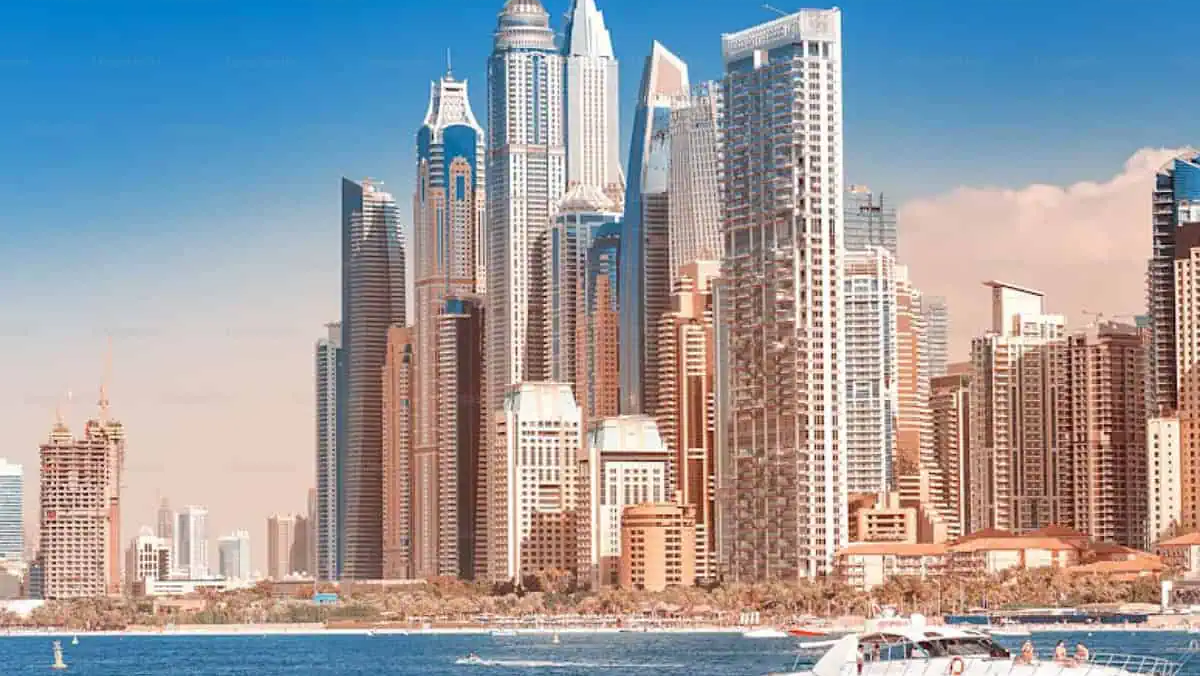Now Reading: Dubai Real Estate: 6 Tax-Safe Investment Strategies for High Net-Worth Buyers
-
01
Dubai Real Estate: 6 Tax-Safe Investment Strategies for High Net-Worth Buyers
Dubai Real Estate: 6 Tax-Safe Investment Strategies for High Net-Worth Buyers

Table of Contents
Dubai’s real estate market continues to attract high net-worth (HNW) U.S. investors, drawn by its tax-free environment, high rental yields, and world-class infrastructure. With no income tax on rental earnings, no capital gains tax, and no annual property taxes, Dubai offers a stark contrast to the U.S., where federal capital gains taxes can reach 20% and state taxes add further burdens, such as California’s 13.3% on high earners.
The UAE dirham’s peg to the U.S. dollar ensures currency stability, and the Golden Visa program, granting 10-year residency for investments of AED 2 million ($545,000), enhances long-term appeal.
In 2025, Dubai’s market is thriving, with Q1 transaction values hitting AED 110 billion, per Dubai Land Department data. This article outlines six tax-safe investment strategies tailored for HNW U.S. buyers, maximizing returns while ensuring compliance with U.S. tax obligations.
1. Invest in Luxury Freehold Properties for Maximum Returns
Luxury freehold zones like Palm Jumeirah, Downtown Dubai, and Emirates Hills offer villas and penthouses with rental yields of 5-7% and capital appreciation potential of 7-10% annually. For example, a $5 million villa on Palm Jumeirah can generate $250,000-$350,000 in tax-free rental income yearly, compared to a similar U.S. property losing 20-30% to taxes. The absence of capital gains tax maximizes resale profits. HNW buyers should target off-plan projects, like Emaar’s Burj Al Arab Views in Downtown Dubai, for lower entry prices and flexible payment plans.
2. Leverage Free Zone Companies for Tax Optimization
HNW investors can own properties through a free zone company, such as in the Dubai Multi Commodities Centre (DMCC), to benefit from 0% corporate tax on qualifying income (e.g., less than 5% mainland revenue or AED 5 million). This structure shields rental income from U.S. corporate taxes if properly managed, offering asset protection and privacy.
Setup costs start at AED 20,000 ($5,400) annually, so weigh these against benefits. Ensure compliance with IRS Controlled Foreign Corporation (CFC) rules to avoid penalties. A tax advisor can structure the entity to align with U.S. reporting requirements.
3. Maximize U.S. Tax Deductions on Rental Income
While Dubai imposes no taxes, U.S. HNW investors must report rental income on Schedule E (Form 1040), offsetting taxable income with deductions like property management fees, maintenance, insurance, and depreciation (typically 27.5 years for residential properties). For a $5 million property, depreciation deductions can reach $181,818 annually, significantly reducing U.S. tax liability. Keep meticulous records, as the IRS may audit high-value foreign investments. Avoid non-deductible expenses, like personal travel costs, to minimize audit risks.
4. Pursue Golden Visa for Residency and Cost Efficiency
Investing AED 2 million ($545,000) in Dubai real estate qualifies HNW buyers for the Golden Visa, offering 10-year residency. This simplifies property management, reduces travel costs, and facilitates UAE bank account setup for seamless rental income collection. For example, a $2 million penthouse in Dubai Marina yielding 7% generates $140,000 tax-free annually, with residency benefits enhancing long-term value. However, U.S. tax obligations persist, and prolonged UAE residency could trigger IRS scrutiny, so plan with a tax advisor.
5. Diversify with Mixed-Use and Commercial Properties
HNW investors can diversify by investing in mixed-use or commercial properties in freehold zones like Business Bay or Dubai South. Commercial spaces, such as offices or retail units, offer yields of 8-10%, higher than residential averages. For instance, a $3 million retail unit in Business Bay can yield $240,000-$300,000 annually, tax-free in Dubai. The absence of capital gains tax boosts resale profits. These properties benefit from Dubai’s growing business hub status, driven by Expo City and Al Maktoum Airport.
6. Use Off-Plan Investments for Capital Appreciation
Off-plan properties in areas like Dubai South or Dubai Hills Estate allow HNW buyers to secure units at 10-20% below market rates, with flexible payment plans spread over 2-5 years. For example, a $1.5 million off-plan villa in Emaar South can appreciate to $1.8 million by completion, yielding tax-free gains. Rental yields of 7-8% further enhance returns. However, construction delays pose risks, so choose reputable developers like Emaar or Damac. Monitor market trends to avoid oversupply risks in high-density areas.
U.S. Tax Compliance Considerations
Despite Dubai’s tax-free status, U.S. HNW investors face IRS obligations. Report foreign assets exceeding $50,000 (single filers) or $100,000 (joint filers) via Form 8938 under FATCA. File an FBAR with FinCEN if foreign accounts exceed $10,000 at any point. Failure to comply can result in penalties up to $100,000 or 50% of account balances.
If using a free zone company, disclose ownership under CFC rules on Form 5471. Foreign Tax Credits (FTC) may apply for non-Dubai taxes (e.g., through U.S. entities), but Dubai’s 4% DLD transfer fee isn’t creditable. A tax professional specializing in international real estate is essential to navigate these complexities.
Risks and Mitigation Strategies
Dubai’s real estate market is robust, with a 19.9% price increase and AED 110 billion in Q1 2025 transactions, per Dubai Land Department data. However, risks include off-plan delays, particularly in newer areas like Dubai South, and potential oversupply in apartment-heavy zones like JVC. Rising global interest rates may limit financing, as UAE mortgages are less accessible for foreigners.
Global economic factors, such as oil price volatility, could affect demand. HNW buyers should partner with RERA-registered agents and conduct due diligence on developers to minimize risks. Diversifying across property types and zones further enhances stability.
Why Dubai in 2025 for HNW Buyers?
Dubai’s tax-free environment, high yields (5-10%), and Economic Agenda D33, targeting a doubled economy by 2033, make it a prime destination for HNW U.S. investors. Luxury zones like Palm Jumeirah and emerging hubs like Dubai South offer diverse opportunities, from villas to commercial spaces.
The Golden Visa provides residency benefits, while off-plan investments and free zone structures optimize returns. With careful planning, HNW buyers can achieve superior ROI compared to U.S. markets, where taxes and lower yields limit profitability.
In conclusion, these six tax-safe strategies luxury freehold investments, free zone companies, U.S. tax deductions, Golden Visa benefits, mixed-use properties, and off-plan purchases empower HNW U.S. buyers to capitalize on Dubai’s booming real estate market. By partnering with trusted developers like Emaar and consulting tax professionals, investors can secure high returns while navigating U.S. compliance requirements in 2025. Dubai Real Estate
read more: Dubai Freehold: 6 Property Zones With Favorable Tax Treatment in 2025



















